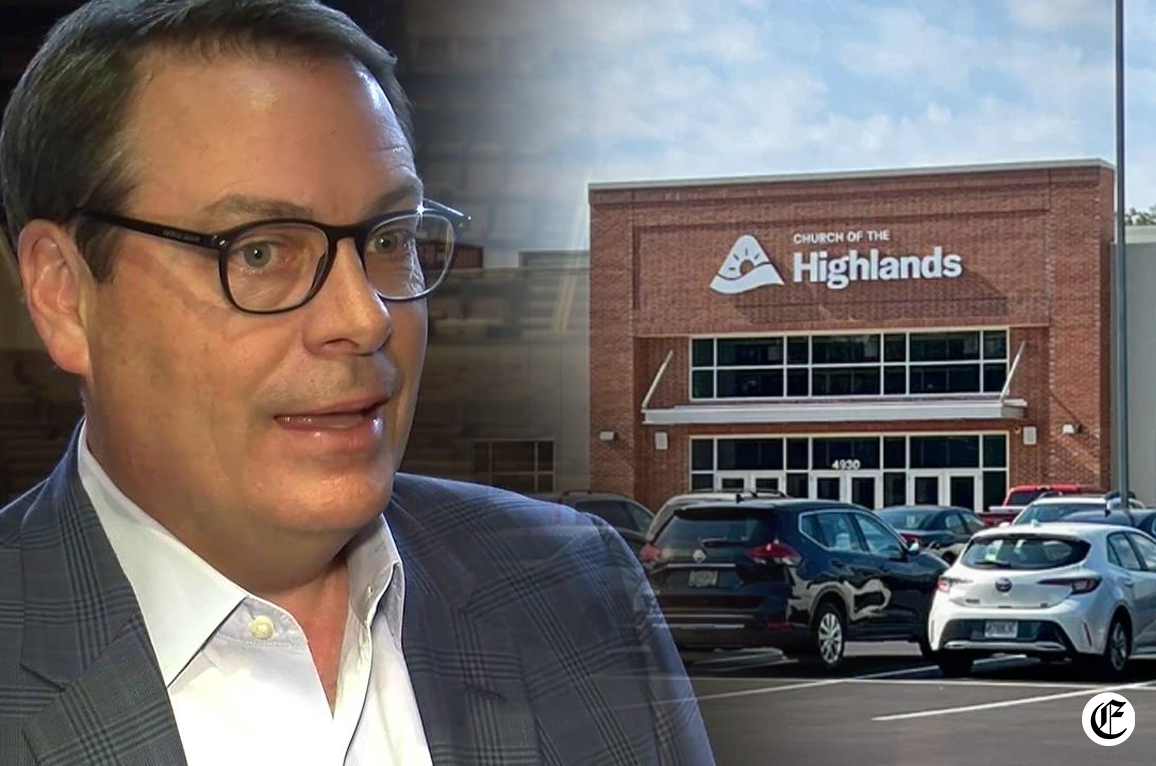In recent years, the Church of the Highlands, one of America’s most prominent megachurches, has become a focal point of controversy. This non-denominational institution, headquartered in Birmingham, Alabama, has garnered significant attention due to its rapid growth, influential leadership, and extensive outreach programs. However, alongside its rise to prominence, a series of scandals and criticisms have surfaced, casting a shadow over its reputation. This article delves deep into the controversies surrounding the Church of the Highlands, uncovering what many believe to be the hidden truths behind its polished exterior.
A Brief History of the Church of the Highlands
The Church of the Highlands was founded in 2001 by Pastor Chris Hodges. Starting with a small congregation meeting in a high school auditorium, the church quickly expanded, establishing multiple campuses across Alabama and beyond. Today, it is one of the largest churches in the United States, with tens of thousands of weekly attendees. The church’s mission, as stated on its website, is to “lead people into a growing relationship with Jesus Christ.”
From the outset, the church’s modern approach to worship, including contemporary music, multimedia presentations, and a focus on practical, everyday issues, resonated with a broad audience. This appeal was further bolstered by its various outreach initiatives, including addiction recovery programs, prison ministries, and disaster relief efforts. Highlands College, an institution dedicated to training future church leaders, also became a key component of its operations.
However, as the church’s influence grew, so did the scrutiny of its practices and leadership. Critics argue that behind the church’s progressive image lies a rigid and authoritarian structure that stifles dissent and perpetuates questionable practices.

Leadership and Power Dynamics
At the heart of the Church of the Highlands is Pastor Chris Hodges, a charismatic leader whose vision and leadership have been instrumental in the church’s growth. However, with such centralization of power comes concerns about accountability and transparency. The church operates under a hierarchical leadership structure, with Hodges at the top, supported by a team of pastors and administrators.
This concentration of authority has led to allegations of a “cult of personality” surrounding Hodges, where loyalty to the leader is valued above all else. Former members and staff have described a culture where questioning leadership decisions is discouraged, and those who speak out are often ostracized. These claims have raised concerns about the church’s governance and whether its leaders are acting in the best interests of the congregation.
Allegations of Financial Misconduct
One of the most persistent controversies surrounding the Church of the Highlands is its financial practices. As a megachurch with a substantial income from tithes, donations, and various business ventures, questions have arisen about how these funds are managed and allocated.
Critics have accused the church of a lack of transparency, particularly concerning the compensation of its leaders. Despite being a tax-exempt organization, the church is not required to publicly disclose the salaries of its top officials. This has led to speculation and allegations of financial impropriety, with some former members claiming that the church’s leaders live lavish lifestyles funded by the congregation’s contributions.
In 2023, these concerns came to a head when a series of financial documents were leaked, purportedly showing questionable transactions and potential conflicts of interest. While the church has denied any wrongdoing, the incident has fueled ongoing debates about the need for greater transparency and accountability in megachurches.
The Micahn Carter Scandal
One of the most significant and damaging controversies to hit the Church of the Highlands involved former pastor Micahn Carter. In 2019, Carter, who had joined the Church of the Highlands after leading a church in Washington state, was accused of sexual misconduct. The allegations stemmed from an incident that allegedly took place while Carter was still serving in Washington.
Despite the severity of the accusations, Carter was allowed to continue preaching at the Church of the Highlands for some time, leading to a public outcry. Critics accused the church of protecting its own rather than prioritizing the well-being of the alleged victim. The situation worsened when it was revealed that the church had known about the allegations before bringing Carter on board but had chosen to proceed with his hiring anyway.
The scandal highlighted the broader issue of how the church handles allegations of misconduct within its ranks. Many have called for more robust policies and procedures to ensure that such incidents are dealt with promptly and transparently. The church’s handling of the Carter case has become a symbol of what some see as a culture of secrecy and protectionism.
Cultural and Racial Sensitivity Concerns
Another area where the Church of the Highlands has faced criticism is its approach to cultural and racial sensitivity. While the church has made efforts to be inclusive, some members of the African American community have expressed concerns about the church’s handling of race-related issues.
In 2020, Pastor Chris Hodges faced backlash after it was revealed that he had liked several social media posts that were deemed racially insensitive. The incident led to protests and calls for greater accountability from the church’s leadership. Although Hodges apologized and met with local African American leaders to address the issue, the controversy highlighted underlying tensions within the church community.
Critics argue that the incident was indicative of a broader lack of understanding and sensitivity towards racial issues within the church. They claim that the church’s predominantly white leadership has failed to adequately address the concerns of its minority members, leading to feelings of alienation and marginalization.
The Role of Highlands College
Highlands College, the church’s ministry training institution, has also come under scrutiny. While the college has been praised for its commitment to developing future church leaders, questions have been raised about its practices and the quality of education it provides.
Former students have reported a culture of conformity, where questioning the teachings or practices of the church is discouraged. Some have also criticized the college’s focus on practical ministry skills at the expense of a more comprehensive theological education. These concerns have led to debates about whether the college is truly preparing its students for the complexities of modern ministry or simply producing a new generation of leaders who will perpetuate the existing power structures within the church.
The Church’s Response to Criticism
In the face of mounting criticism, the Church of the Highlands has sought to address some of the concerns raised by its detractors. Pastor Chris Hodges has publicly acknowledged that the church has made mistakes and has promised to implement changes to improve transparency and accountability.
The church has also launched internal investigations into the various allegations and has made efforts to engage with the community to rebuild trust. However, critics argue that these measures have been insufficient and that more needs to be done to address the systemic issues within the church.
Conclusion
The controversies surrounding the Church of the Highlands have raised important questions about the responsibilities of religious institutions, particularly those with significant influence and resources. As the church continues to grow and expand, it must grapple with the challenges of maintaining its integrity and the trust of its members.
The issues of leadership accountability, financial transparency, and cultural sensitivity are not unique to the Church of the Highlands; they are challenges faced by many large religious organizations. However, the way the Church of the Highlands chooses to address these challenges will likely have a significant impact on its future and its role in the broader religious landscape.
As congregants and the public continue to demand greater transparency and accountability, the Church of the Highlands finds itself at a crossroads. Whether it can emerge from this period of scrutiny with its reputation intact will depend largely on its willingness to embrace change and to address the concerns of its critics head-on. The church’s ability to adapt and respond to these challenges will determine whether it continues to be seen as a beacon of faith or as an institution mired in controversy.
FAQs
What is the Church of the Highlands?
The Church of the Highlands is a non-denominational megachurch based in Birmingham, Alabama, founded by Pastor Chris Hodges in 2001. It is one of the largest churches in the United States, with multiple campuses and a significant following.
What are the main controversies surrounding the Church of the Highlands?
The church has faced several controversies, including allegations of financial misconduct, mishandling of sexual misconduct cases, and concerns about racial sensitivity. These issues have raised questions about the church’s leadership and governance.
How has the church responded to these controversies?
The Church of the Highlands has acknowledged some of the criticisms and has taken steps to address them, including launching internal investigations and engaging with the community. However, critics argue that more needs to be done to address the systemic issues within the church.
What is Highlands College?
Highlands College is the ministry training institution affiliated with the Church of the Highlands. It focuses on developing future church leaders and offers a curriculum centered on practical ministry skills.
What impact have these controversies had on the church’s reputation?
The controversies have sparked significant debate and have led to increased scrutiny of the church’s practices and leadership. While the church remains influential, its reputation has been affected by the ongoing criticisms and allegations.






